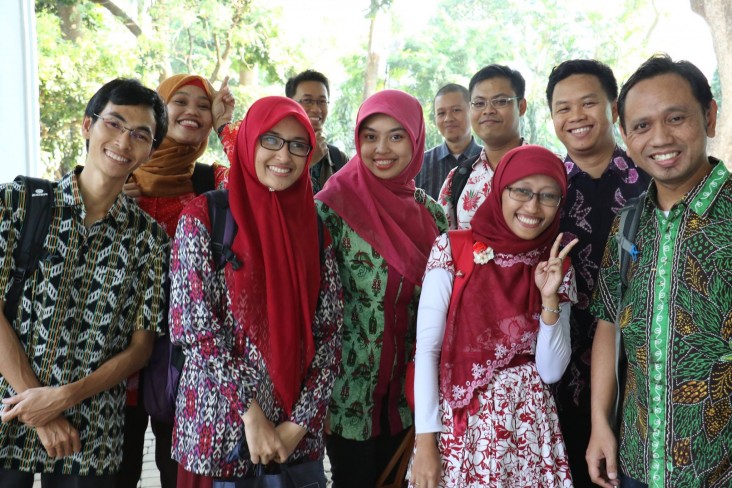Speeches Shim

Thank you for your interest in our scholarship program.
USAID scholarship program is currently not recruiting. If you are interested in pursuing studies in the U.S. and want to take advantage of thousands of academic programs, world-class institutions, and unmatched flexibility, you can access free student advising at one of eight EducationUSA centers in Indonesia.
USAID works with the Women's Empowerment and Child Protection Agency and other key agencies to establish a coordinated approach and provide more efficient referral services to victims of gender based violence in Papua and West Papua.
Despite their allure, the provinces are not a paradise for everyone.
Papua and West Papua have some of the highest rates of violence against women in the country.
My name is Alce Alfrida Makanuay. I am a nurse at Puskesmas (Community Health Center) Tanjung Ria. I’m a mother of two. Every mother or parent definitely has wonderful hopes for their children, just like me.
UN statistics indicate that roughly 41 percent, or nearly 133 million, of Indonesian women experience gender-based violence (GBV) during their lifetimes. About 16 percent of these women endure physical or sexual abuse.
In my opinion, the number of GBV cases is still high in Indonesia, also in Papua. First, this is due to society’s knowledge about the violence itself. Some cultures normalize violence, including ours. For Papuans, once dowry is paid for marriage, the man gains full rights over the woman, even though this is illegal and immoral. This has to do with the knowledge, culture, and social norms in the community and how this issue is not yet fully understood at all levels of the community, resulting in GBV.
Health centers are on the front lines in the fight against the GBV epidemic. Nearly every day, local government-run health centers treat women who have experienced violence from their partner or other men.
I have been working here for about 14 years. I’m also a counselor for GBV patient handling. On average, 12 to 15 GBV victims seek help at puskesmas Tanjung Ria every year. Aside from that, there are certainly more victims. They might seek help from the hospital or the police.
USAID Bersama worked with government agencies and health centers like Puskesmas Tanjung Ria to help victims and survivors obtain better services.
Together with USAID Bersama, we developed Standard Operating Procedures (SOPs) for GBV patient handling. These SOPs will be useful for everyone at the puskesmas, not only me, when providing services to GBV victims-- because now there’s a standard SOP for that.
USAID Bersama worked with local offices of women’s empowerment and child protection and other key agencies in the provinces to set annual budget priorities and obtain funding to expand services and increase resources to help GBV victims.
By working with USAID Bersama, we at the Integrated Service Center for Women’s Empowerment and Children (P2TP2A) were encouraged and supported to use the new SOPs. Before USAID Bersama, it was rather difficult. The health sector worked alone, the police worked alone, and we also worked alone. But after USAID Bersama’s assistance, particularly in developing the new SOPs, the coordination among service providers improved.
Supported by USAID Bersama, the coordinated approach provided victims and survivors of gender-based violence with more efficient referral services.
I hope both of my children can be agents of change, particularly in GBV issues, and that they can speak out to say that GBC is not allowed by law or any religion. I hope they will disseminate this information to their colleagues and others, not only in Jayapura City, Papua Province, Indonesia, but to the world.
USAID Bersama has equipped nurses like Alce with better resources and knowledge to support health centers and other public service agencies. This will help more GBV victims and survivors in Papua and West Papua get the help and services they need.
Alce Alfrida Makanuay, Nurse.
USAID, From the American People.


Comment
Make a general inquiry or suggest an improvement.